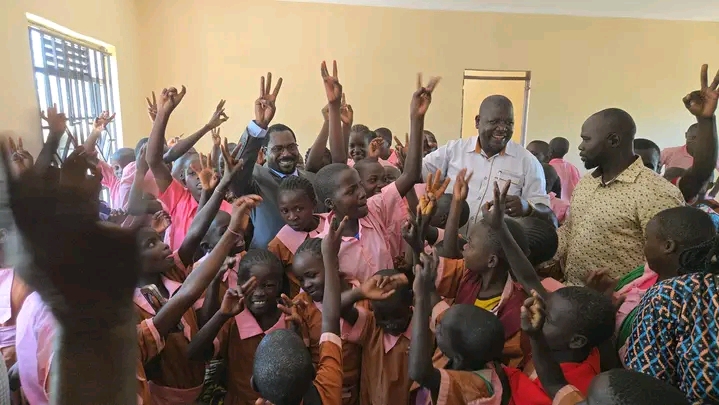It’s not unusual anymore for university administrators to receive phone calls – not from students – but from their parents. And these calls don’t just come during emergencies or family crises. They come when a student doesn’t get hired for a part-time job on campus. When a roommate conflict arises. When a grade dips from an A to a B. Even when a student is caught submitting AI-generated work in violation of academic policy, it’s the parent – not the student – on the line, defending the action. Let your children fight their own battles so as to learn.
To be blunt: this is a crisis of overparenting.
As educators and administrators, we expect students to be in the process of becoming adults. We expect them to stumble, reflect, recover, and grow. We expect them to take ownership of their choices and to learn from both success and failure. But increasingly, many students aren’t given that chance – because their parents won’t let go.
It begins with good intentions. Parents want their children to succeed. They want to protect them from harm, unfairness, or failure. But somewhere along the way, that protective instinct turns into interference. And when that happens, students are robbed of the very growth that higher education is meant to provide.
A student doesn’t get selected for a work-study job? Instead of encouraging them to seek feedback and try again, the parent calls the hiring department to demand an explanation. A student gets into a disagreement with a roommate? Rather than coaching them on compromise or helping them practice communication skills, the parent insists the university relocate the other student.
These aren’t isolated incidents. They are becoming the norm. And the result is a generation of young adults who are bright, talented, and capable – but emotionally dependent, conflict-averse, and unable to navigate discomfort.
There’s a term for this: learned helplessness. When a student never has to solve their own problems, they begin to doubt their own ability to do so. They defer to others for every solution. They avoid taking risks because they’ve been protected from the consequences.
Parents must understand that real resilience is born from struggle. The college years are not just about academic content; they are a training ground for life. Learning how to advocate for oneself, manage disappointment, resolve interpersonal tensions, and work through frustration are core components of the university experience. When parents swoop in at the first sign of trouble, they deny their children the opportunity to build those muscles.
And there’s another layer to this: accountability.
Take, for instance, a student who submits a paper entirely generated by ChatGPT. The institution views this as academic dishonesty—because it is. The use of generative AI without proper citation or original thought violates basic principles of integrity. Yet some parents call the university to argue that this isn’t cheating, just “a modern tool” or “a smart way to manage time.” That kind of defense sends a dangerous message: that rules can be bent or excused as long as the outcome is favorable. That values don’t matter when convenience is at stake.
READ ALSO:
Teachers urged to uphold sports integrity to nurture young talents
We are raising students who expect success without effort and absolution without consequence. And while that might work temporarily within the safety of university systems, it collapses once they enter the real world. Employers won’t take calls from parents explaining a missed deadline or a workplace disagreement. The world demands independence.
It’s time we return to a more balanced approach to parenting.
Let your children fail. Let them cry in frustration. Let them wrestle with a difficult professor or an unfriendly roommate. Let them email for feedback, schedule the appointment, ask the hard questions. Stand beside them – but not in front of them.
Coach them. Guide them. But don’t rescue them from every uncomfortable moment.
When your child earns a B, resist the urge to call the professor. Instead, ask them: “What could you have done differently?” When they have a dispute with a classmate, don’t draft an email on their behalf. Instead, help them reflect on how to communicate with empathy. When they miss a job opportunity, don’t demand explanations from the hiring office. Instead, encourage them to learn, improve, and try again.
Resilience is not born in safety. It is born in struggle. As an educator, I say this not with blame, but with concern. We see what happens when students arrive on campus and are ill-equipped to handle life on their own. We see students crumble under pressure, not because they’re weak, but because they’ve never been taught how to cope. We see students disengage from challenges because they’ve always had someone else carry the burden.
Let your child fight their own battles – not because you don’t care, but because you do.
Let them grow into the thoughtful, independent, self-aware individuals they were meant to be. They can’t do that if you’re always holding the shield. Sometimes, the best parenting move is to step back and trust that the values you instilled will carry them through.
University is not just an academic experience – it is a life experience. It is a space where young people discover their voice, build resilience and learn who they are outside of their parents’ shadows. They will face setbacks, misunderstandings, and even failure. But that is the point. It is through those moments that they develop the strength, humility, and wisdom that will serve them for a lifetime.
In the end, the greatest lesson a student can learn in university is not found in textbooks, but in life itself: how to stand up, speak up, and grow up. Let’s not rob them of that.
Ashford Gikunda
Ashford teaches English and Literature in Gatundu North Sub County where he serves as Dean of Students.
You can also follow our social media pages on Twitter: Education News KE and Facebook: Education News Newspaper for timely updates.
>>> Click here to stay up-to-date with trending regional stories
>>> Click here to read more informed opinions on the country’s education landscape
>>> Click here to stay ahead with the latest national news.






